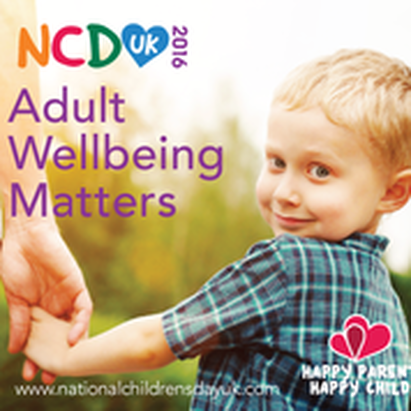Single News
Protecting childhood
As the Save Childhood Movement in the UK prepares for National Children’s Day 2016, campaigns are also underway to stop the erosion of natural childhood.
LONDON/EDINBURGH (NNA) – “National Children's Day UK is all about the importance of a healthy childhood and how we need to protect the rights and freedoms of children in order to ensure that they can grow into happy, healthy adults,” so says the Save Childhood Movement as it prepares for National Children’s Day 2016 which it is celebrating on 15 May.
This year the event, which is now in its third year, will focus on the importance of the wellbeing of adults as a key factor in the wellbeing of children. The aim of NCDUK is to get as many people as possible to create events and activities that highlight and celebrate the rights and freedoms of children.
As part of the event it is looking for sponsors and partners: “NCDUK offers a unique opportunity for partners and sponsors to help promote the importance of children’s rights and freedoms. We are looking for people and organisations that want to help us make a real difference in the way that childhood in the UK is understood and protected – and that want to show that fun, play and creativity are all part of the process,” the Save Childhood Movement says.
Children’s Day was originally established in 1954 by the UN General Assembly and was intended as a day of worldwide fraternity and understanding between children. Many other countries celebrate the rights of children on 20 November – the United Nations nominated day.
“However, we felt that it was really important that British children should be able to get outside on Children’s Day, into their neighbourhoods and nature, so we have chosen to hold it at the beginning of the summer,” the Movement adds.
Better without Baseline
The Save Childhood Movement was launched in 2013 and consists of a growing collaboration of individuals and organisations that share a deep concern about societal values and wellbeing and the current erosion of natural childhood.
As part of that concern the organisation has been campaigning in England against the introduction of the so-called baseline assessment for children on entry to full-time school, in reception classes at age four. The assessment aims to “provide a score for each child at the start of reception which reflects their attainment against a pre-determined content domain”, the Department for Education in England explains on its website. This will then be used “as the basis for an accountability measure of the relative progress of a cohort of children through primary school”.
According to the “Better without Baseline” campaign, such standardised assessments are strongly opposed by a wide coalition of education experts and teaching unions on the basis that the current baseline assessment schemes will not provide statistically valid or reliable information about children’s starting points. Many children would not be able to demonstrate what they know, understand and can do in the unfamiliar context of a new class, with new adults, and using narrow computer-based tests.
Furthermore, the assessments disrupted children’s introduction into school during the vital settling-in period; the new systems undermined existing levels of communication about the child with early years settings and parents; and the narrow focus on attainment in prescribed subject areas was harmful to children’s learning and development in the early years.
Upstart
In a similar development, a campaign has started in Scotland to introduce a kindergarten stage for children aged three to seven. At age four to five, the UK has the youngest school starting age in Europe, indeed the world, by some margin – most other countries wait until six or even seven.
On its website, the Upstart campaign cites international evidence which shows that children under the age of seven benefit from an educational approach that “supports their all-round physical, emotional, social and cognitive development, rather than pushing them towards early academic achievement”.
The emphasis in a kindergarten stage would be on opportunities for children to play – especially outdoors – along with the development of social and communication skills, and teacher-led opportunities for art, drama, music, science and maths investigations, and listening to stories.
It would give children time and space to develop the habits of play that promote mental and physical health and wellbeing: “It’s learning through enjoyable experiences rather than formal teaching.”
National Children’s Day UK is a reminder that children should not be deprived of their childhood.
END/nna/cva
Item: 160318-02EN Date: 18 March 2016
Copyright 2016 News Network Anthroposophy Limited. All rights reserved.

